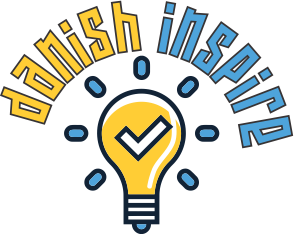In this article we are going to discuss How to prepare for an Internship Interview? Preparing for an internship interview can be a crucial step in setting the stage for your future career. Whether you are a student seeking hands-on experience or a recent graduate looking to gain industry insights, the internship interview is your opportunity to showcase your skills, enthusiasm, and fit for the role.
How to prepare for an Internship Interview?
This detailed guide will walk you through the essential steps to effectively prepare for your internship interview, ensuring you present yourself as a confident and capable candidate.
1. Understand the Company and Role
The foundation of a successful internship interview starts with thorough research. Begin by understanding the company’s mission, values, culture, and recent developments. Familiarize yourself with the products or services they offer, their market position, and their competitors. This understanding will allow you to customize your answers and show your authentic enthusiasm for the company.
For the role itself, carefully review the job description to understand the required skills and responsibilities. Highlight the key qualifications and consider how your background aligns with these requirements. Make a list of the essential tasks and responsibilities, and think about how your previous experiences and skills make you a suitable candidate.
2. Prepare Your Resume and Application Materials
Ensure that your resume is up-to-date and tailored to the internship position you’re applying for. Highlight relevant coursework, projects, and any previous experience that aligns with the internship responsibilities. Additionally, prepare a cover letter if required, emphasizing your enthusiasm for the role and how your skills make you a strong fit. Proofread all materials carefully to avoid any typos or errors.
Also Check: 10 Best Websites to Apply for Internship
3. Practice Common Interview Questions
While each interview will have its unique questions, there are common themes that frequently arise. Practice answering questions about your background, strengths, weaknesses, and experiences. For instance, you might be asked about your academic achievements, extracurricular activities, or specific projects you’ve worked on. Additionally, be prepared to discuss how you handle challenges, work in teams, and manage your time effectively.
Situational and behavioral questions are also common. For example, you might be asked to describe a time when you overcame a significant challenge or worked on a team project. Use the STAR method (Situation, Task, Action, Result) to structure your responses. This approach helps you provide clear and concise answers while highlighting your problem-solving and teamwork skills.
4. Develop Your Elevator Pitch
An elevator pitch is a brief, persuasive speech that you use to introduce yourself to potential employers. Craft a succinct pitch that highlights your background, key skills, and what you hope to achieve through the internship. This should be a 30-60 second summary that captures your qualifications and enthusiasm for the role. Practice delivering it smoothly and confidently.
5. Prepare Questions for the Interviewer
Interviews are a two-way street, and having thoughtful questions for the interviewer shows your interest and engagement. Prepare a list of questions about the role, team dynamics, company culture, and opportunities for growth. For instance, you might ask about the day-to-day responsibilities of the internship, the team you’ll be working with, or how success is measured in the role. Avoid questions that can be easily answered by researching the company’s website or generic queries that don’t show real interest.
6. Dress Appropriately
The right attire can significantly impact your first impression. Select professional clothing that matches the company’s dress code and overall style. For most corporate settings, business casual is a safe choice, but if the company has a more formal or casual dress code, adjust accordingly. Ensure that your clothes are clean, well-fitted, and appropriate for the setting. Your appearance should convey that you are serious about the opportunity and respectful of the interview process.
Also Check: Top Websites in the World
7. Practice Good Body Language
Non-verbal communication plays a crucial role in interviews. Maintain a confident and professional demeanor by sitting up straight, making steady eye contact, and giving a firm handshake. Your body language should convey assurance and attentiveness. Steer clear of fidgeting, crossing your arms, or seeming disengaged. Instead, show engagement through nodding, smiling, and actively listening.
8. Plan Your Logistics
Ensure that you know the details of the interview well in advance. If it’s in-person, plan your route and arrive early to account for any unforeseen delays. If it’s virtual, test your technology, including your internet connection, camera, and microphone. Choose a quiet and professional-looking environment for the interview and eliminate potential distractions.
9. Manage Interview Anxiety
Feeling nervous before an interview is normal, but managing that anxiety can help you perform better. Use relaxation techniques like deep breathing or visualization exercises to help ease your anxiety. Remind yourself that the interview is an opportunity for both you and the company to determine if there is a good fit. A positive mindset can help you approach the interview with confidence and clarity.
10. Follow Up After the Interview
After the interview, send a follow-up email to thank the interviewer for the opportunity and express your gratitude for the chance to discuss the position. Reiterate your enthusiasm for the role and briefly mention a key point or two from the conversation that reinforces your fit for the position. A well-crafted follow-up message can leave a positive impression and keep you top of mind with the interviewer.
Conclusion
In conclusion, preparing for an internship interview involves thorough research, practicing your responses, and presenting yourself professionally. By understanding the company and role, honing your resume, and preparing thoughtful questions, you set yourself up for success. Effective body language, appropriate attire, and managing your anxiety are also key factors that contribute to a strong interview performance. With these strategies in mind, you’ll be well-equipped to approach your internship interview with confidence and make a lasting impression on your potential future employer. So, I hope you have understood How to prepare for an Internship Interview.

